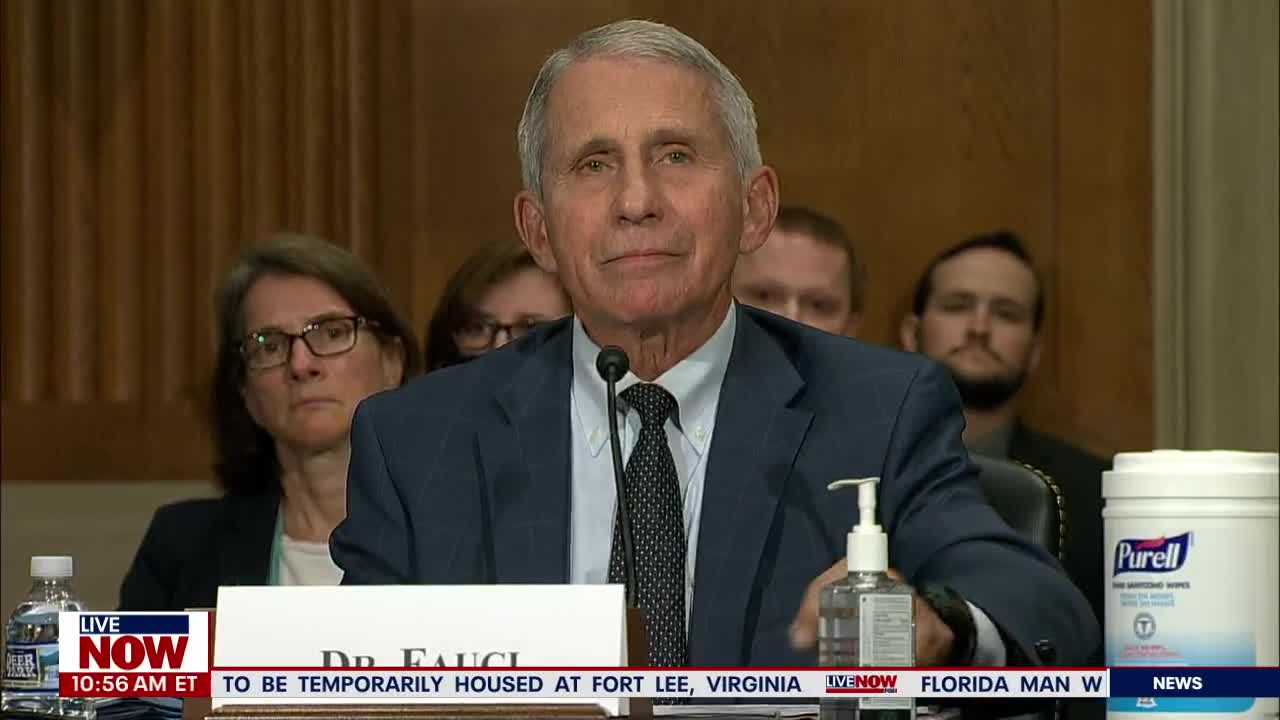Fauci: CDC ‘carefully looking’ at mask guidance for schools

Dr. Anthony Fauci, testifying at a Senate Health Committee hearing on the country's response to COVID-19, called out Sen. Rand Paul, accusing the senator of repeatedly lying about evidence regarding the origins of the coronavirus. Fauci, the director of the National Institute of Allergy and Infectious Diseases, testified that he has never lied to Congress and that Sen. Paul does "not know" what he's talking about.
LOS ANGELES - The American Academy of Pediatrics this week recommended universal masking in schools, even for those who are vaccinated against the virus that causes COVID-19. In response, Dr. Anthony Fauci said the academy wants to "go the extra mile" to make sure kids are protected, but said the U.S. Centers for Disease Control and Prevention is closely monitoring the situation.
Fauci told "CBS This Morning" on Tuesday the guidance is out of an abundance of caution due to the rise in cases blamed on the delta variant of the coronavirus.
RELATED: AAP: Students, staff should wear masks in schools — regardless of vaccination status
That guidance is different from the CDC, which has advised mask-wearing in schools just for unvaccinated children and adults.
Fauci said the CDC is "carefully looking" at its COVID-19 school guidance.
The academy said getting children back into schools and learning alongside their fellow students and teachers was the top priority and that "we all play a role in making sure it happens safely."
"The pandemic has taken a heartbreaking toll on children, and it’s not just their education that has suffered but their mental, emotional and physical health. Combining layers of protection that include vaccinations, masking and clean hands hygiene will make in-person learning safe and possible for everyone," said Sonja O’Leary, MD, FAAP, chair of the AAP Council on School Health.
The AAP is strongly recommending mask-wearing due to a large proportion of students being ineligible for the COVID-19 vaccine, which the U.S. Food and Drug Administration says will not be available to children 12 and under until later this year.
Because it remains unclear whether or not vaccinated people can still transmit the novel coronavirus to unvaccinated people who are at higher risk of severe illness or death, face masks have been heralded by health experts as the best tool to curb the spread of the virus without inoculations.
"There are many children and others who cannot be vaccinated," said Dr. Sara Bode, chair-person elect of the AAP Council on School Health Executive Committee. "This is why it’s important to use every tool in our toolkit to safeguard children from COVID-19. Universal masking is one of those tools, and has been proven effective in protecting people against other respiratory diseases, as well. It’s also the most effective strategy to create consistent messages and expectations among students without the added burden of needing to monitor everyone’s vaccination status."
RELATED: COVID-19 vaccines for children under 12 likely approved later this year, FDA says
Meanwhile, COVID-19 vaccines that will be safe enough to use on children ages 12 and under will likely not be approved until later this year, according to a U.S. Food and Drug Administration stakeholder meeting held on July 6.
The director of the FDA’s Center for Biologics Evaluation and Research, Dr. Peter Marks, said that while the vaccine has proven effective and safe for young people 12 and older, the parameters that determine the safety of those same vaccines in children younger than 12 takes longer.
"There are trials now undergoing, in the two to 11 age range, as well as some even in the youngest children of only a few months to two years. Those results will be in later this year. They take a little longer to do because we are requiring longer follow-up to make sure that the safety is adequate," Marks said.
In May, the FDA authorized emergency use of Pfizer’s COVID-19 vaccine in kids as young as 12.
Pfizer’s vaccine had already been used for months in people 16 and older, and advisers at the U.S. Centers for Disease Control and Prevention had also concluded the same dose adults use is safe and strongly protective in those 12 to 15 years old.
The two-dose vaccine made by Pfizer and its German partner BioNTech was studied in more than 2,000 kids ages 12 to 15. There were no cases of COVID-19 among vaccinated kids compared with 16 in the group given dummy shots. Kids also developed higher levels of virus-fighting antibodies than vaccinated adults.
Side effects are the same as what adults experienced, mostly sore arms and flu-like fever, chills or aches that signal the immune system is revving up.
This story was reported in Los Angeles. Catherine Park and The Associated Press contributed.

